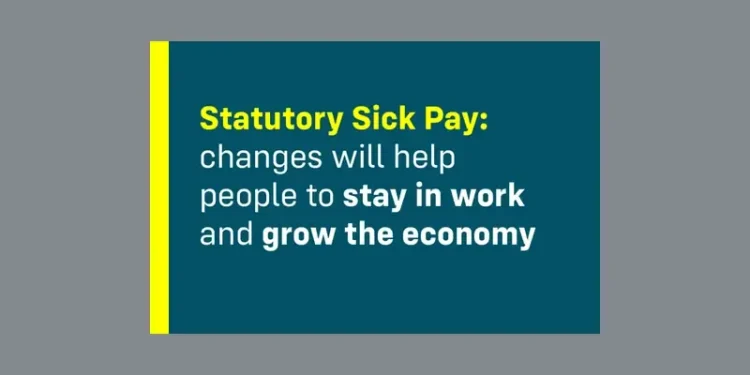The UK government has announced a significant increase in Statutory Sick Pay (SSP) to £118.75 per week, effective from April, with payments starting from the first day of illness.
This change aims to improve living standards for over one million workers by reducing financial stress during illness and supporting economic growth.
Improved Financial Security for Workers
The recent changes to Statutory Sick Pay (SSP) are set to provide much-needed relief for low-income workers across the UK.
By increasing the SSP rate to £118.75 per week and eliminating the three-day waiting period, the government is addressing a critical issue of financial insecurity faced by many when they fall ill.
This move ensures that workers no longer have to choose between their health and their income, allowing them to focus on recovery without immediate financial stress.
Positive Reactions from Stakeholders
Industry leaders and trade unions have welcomed these reforms as a crucial step towards protecting workers’ financial security during illness.
The Trades Union Congress (TUC), among others, has highlighted the importance of these changes in preventing financial hardship for sick workers.
By ensuring that employees can take necessary time off without fear of losing income, businesses may also benefit from improved employee retention and overall workforce health.
Details of the New SSP Policy
- SSP will increase to £118.75 per week starting April.
- Payments will be made from the first day of illness.
- The policy aims to support over 1 million low-wage workers.
- This change is part of a broader strategy focusing on economic growth and worker rights.
A Broader Strategy for Economic Growth
The SSP reforms are part of the UK government’s Plan for Change, which focuses on boosting economic growth while enhancing workers’ rights.
These changes align with efforts to address productivity challenges within the UK economy by ensuring that employees can recover fully before returning to work.
The government has also been working on other initiatives such as addressing fire-and-rehire practices and zero-hour contracts, aiming to create a more secure and productive workforce overall.
Additional Reading
In Conclusion
The UK’s decision to enhance Statutory Sick Pay reflects a commitment to improving worker welfare while supporting economic stability.
By prioritizing health without compromising income, this policy change could lead to healthier workplaces and stronger economic performance in the long run.
Sources: UK Government, Trades Union Congress, Department for Work and Pensions, and BBC News Article on SSP Changes.
Ivan Alexander Golden, Founder of THX News™, an independent news organization dedicated to providing insightful analysis on current events, prepared this article.









